On the Caribbean Sea and bordered by Guatemala and Mexico, Belize is home to the second-longest Barrier Reef in the world, a UNESCO-recognized World Heritage Site. It’s also home to the phenomenal Great Blue Hole, a natural sinkhole that’s more than 400 miles deep. The Great Blue Hole is on most scuba divers’ bucket lists and was named by Jacques Cousteau as one of the top five diving sites in the world.
At nearly 9,000 square miles, Belize has a small population, leaving plenty of room for flora and fauna. In fact, 37% of the country’s land falls under some sort of official protection. It is home to more than 5,000 species of plants, and hundreds of species of animals, including the ubiquitous Howler monkey. And the Cockscomb Basin Wildlife Sanctuary established n 1990 in south-central Belize, is the world’s first sanctuary for the jaguar.
Belize takes its location on the Caribbean Sea seriously, and 13.6% of its territorial waters are protected. It was the first country in the world to ban bottom trawling in the fishing industry. Its reef system is a series of coral reefs straddling the coast, starting in Cancún and reaching to Honduras. One of the most diverse ecosystems in the world, the reef is home to 70 hard coral species, 36 soft coral species, 500 species of fish, and hundreds of invertebrate species.
Only 10% of the reef has been researched, so there are still many lifeforms to discover. What will you discover when you volunteer with marine wildlife and research coral reefs in Belize? In addition to discovering new plants and animals, volunteers are needed to help research and protect Belize’s corals, at risk because of global warming. The increase in ocean temperatures causes coral bleaching, and scientists estimate that 40% of Belize’s coral reefs have been damaged since 1998. Corals get their color from zooxanthellae, small single-cell plants that foster the polyps, which are reef-building creatures. But, when the water is too warm, the zooxanthellae are driven away, and the coral polyps lose its food source and starve.
When the reef is weak, it can suffer from other man-made threats, such as oceanic pollution, uncontrolled tourism with snorkelers who smother them with sand, and fishing that damages the coral branches. Once they start to decline, the coral reefs cannot withstand hurricanes and other large storms. Dead coral is bleached a light gray or white, and the seafloor becomes a wasteland.
Know Before You Go
English is the official language of Belize, formerly known as British Honduras. Belizean Creole, however, is the unofficial native language, with Spanish being the second-most-common language spoken there. It’s a Commonwealth realm, which means Queen Elizabeth II as its monarch and head of state. Belize’s government is a parliamentary constitutional monarchy.
The Maya civilization emerged in the Yucatan Peninsula more than 3,000 years ago and spread across what is now Belize around 1500 BC. This ancient and culturally important civilization flourished there until about 900 AD. When the Spanish Conquistadors explored the area in the sixteenth century, they decided not to settle there because of limited natural resources and hostile native people.
Next came English and Scottish pirates, known as the Baymen, who settled along the coast in 1638 to better attack Spanish ships. Soon, a port was established and it became a trade colony, built upon the backs of black slaves forced to cut logwood to use for clothing dyes. The Spanish relinquished control to the British in exchange for quelling the pirates and enforcing the law in the land. A superintendent came to the country in 1786, but it wasn’t until the mid-1800s that reform occurred, following the abolishment of slavery in England. Despite this, former slaves still were discriminated and restricted from buying land and were forced to continue working in the timber industry.
The country became a British Crown Colony in 1862 and named British Honduras. Conditions didn’t improve much, and in the 1930s, the Great Depression and hurricanes devastated the tiny colony. Poor economic conditions prompted reform in the way of the People’s United Party, and in 1954, universal suffrage was granted. In 1964, Britain granted British Honduras self-government and, on June 1, 1973, the country took the name “Belize.” It was granted independence in 1981, however, Guatemala refused to recognize the new nation and a territorial dispute began, and it remains contentious. Guatemala’s government’s claims to own the country because of a clause in the 1859 Anglo-Guatemalan Treaty.
Featured Belize Volunteer Programs
Trending Guidebooks
Volunteering Abroad AFTER the Coronavirus Outbreak
Read 25,953 times2025 Best Internships Abroad: Medical Care, Marine Biology & More
Read 89,705 timesVolunteer in Australia: Animals, Conservation, Ranching and More
Read 49,408 times2025 Best Volunteer Abroad Programs, Organizations, and Projects
Read 3,648,992 times
International Volunteer HQ, founded in 2007, supports meaningful volunteer experiences abroad and partners with NGOs on a variety of programs in Asia, the Pacific, Africa, Europe, the Caribbean, and North, South, and Central America. This trusted, low-cost volunteer program has very affordable fees starting at $180, and since their start, IVHQ has placed more than 80,000 volunteers around the world on programs in education and childcare, conservation and wildlife, community building, medical care, and much more. Volunteers are invited to stay abroad one week to six months to gain the most from their experience.
Help protect the marine ecosystem while you become a certified scuba diver in the calm, clear waters of Belize! This IVHQ volunteer project places you on a small, private island off the coast of Placencia with marine conservation biologists researching and gathering data on sea life. You’ll receive comprehensive training for this dive-based research project, allowing you to be an effective volunteer with your contributions to the program.
You’ll conduct surveys of coral reefs and learn how to remove the invasive Lionfish species using a spear gun. You also will earn your PADI Open Water scuba diver certification and make 13 dives each week of your stay, including a night dive. The research activities you’ll be a part of include:
- Coral Reef Surveying: Observe the bleaching effects of warming ocean waters on coral during your surveys, and learn how to identify the different kinds of coral.
- Invasive Species Removal: There’s speculation about how the invasive Lionfish, indigenous to the Pacific and Indian oceans, made its way into the Caribbean, including the thoughtless release of a mating pair from a Florida fish tank. Regardless, this fish has no natural predators and are reproducing at a fast rate, feeding on the native species. You’ll assist with controlling the Lionfish population by spearfishing them. The fish are given to local restaurants for food, and to local artisans for jewelry.
- Marine Species Survey: You’ll survey lobsters, measuring their length, determining gender, and checking to see if the females are carrying eggs. You’ll also search for the Queen Conch, a large marine mollusk that is overfished because of the commercial value of its shell. Gather data about the breeding patterns, migration paths, and populations of this significant invertebrate.
- Whale Shark Research: The largest fish in the ocean, whale sharks grow to 14 meters in length and feed off plankton and small fish. Their numbers are declining because of the commercial value of their fins and meat. If you spot one, you’ll take photos and take notes about their unique skin pattern, size, and other identifying marks.
When you arrive in Belize, you’ll make your way to Placencia, and then travel by boat to the island research center. Orientation is held on Mondays, and you’ll be introduced to the program, its rules, and expectations, health, and safety guidelines, and learn about the marine ecosystem. Spend your weekends on the water, either kayaking or on a paddleboard, or head inland and go exploring. There are prehistoric Mayan archaeology sites to visit, spice farms, and waterfalls within a day’s trip. Learn more here!
Projects Abroad is a multinational organization that works across language, cultural, and geographic lines to offer projects in more than 50 countries. Founded in 1992, mutual learning and cultural exchange is at the heart of its mission, and Projects Abroad has placed more than 120,000 travelers on programs worldwide. Volunteers range in age from 16 to 75, and together they have global impacts on social, environmental, and economic projects.
Barrier reefs are the forests of the oceans, providing habitats for thousands of marine creatures. They are also essential producers of oxygen for the entire planet. The Belize Barrier Reef remains threatened by issues like global warming, invasive animal life, and pollution. Join Projects Abroad in Belize to help protect the second largest barrier reef system in the world. After completing PADI Open Water Diver Certification, you’ll go diving to collect data used by marine conservationists.
During your conservation project, you can take part in some of these activities:
- Get PADI Open Water Diver or Advanced certification
- Go on survey dives to collect data about the creatures living along the reef
- Run awareness campaigns about the importance of marine conservation
- Take part in salvage dives and beach clean-ups to reduce litter in the area
You can take a stand against these problems by contributing to healthier waters around this important natural resource. This also is an amazing opportunity to experience the clear blue waters of the Caribbean Sea, including the Blue Hole, while doing important work to protect our planet. Click here to begin your Belize volunteer adventure.
Weekends are free, so you can go cave tubing, explore Belize’s jungles, or plan a trip to the Maya ruins. Or, join other volunteers and hang out at the beach, where you can fish, snorkel or dive. Fees are $3,470 for one week, $5,060 for four weeks, and $7,180 for eight weeks (it gets much cheaper the longer you stay). Your fee includes PADI diving courses and equipment rental, accommodations and meals, travel and medical insurance, transportation to and from the airport, transport to your work placement, and in-country 24/7 support. You’ll be placed with a supervisor and receive training, and certification at the conclusion of the project.
Frontier, founded in 1989, is a nonprofit organization devoted to conservation and sustainable livelihood development. Originally focused on scientific research and conservation, Frontier’s staff and volunteers now work tirelessly with NGOs and communities to safeguard biodiversity through meaningful travel opportunities. Frontier has developed over the years with an eye on global impact, building more than 400 projects in 60 countries that place travelers in community development, education, wildlife rescue and rehabilitation, humanitarian, and research and conservation projects.
Frontier’s marine conservation project places you on a long-term, sustainable program at a renowned reef, helping to expand research and protection of fragile ecosystems in partnership with the Belize Fisheries Department. You’ll travel to Belize, the center of Mesoamerica biodiversity, where you’ll explore, chart, and monitor extensive coral reefs for health and threats, survey vast seagrass beds, and record the array of sea life along the barrier reef.
Through scuba diving and snorkeling, you’ll survey colorful reef fish and rays, sea urchins, anemones, moray eels, nurse sharks, octopus, and sea turtles. Your research expands to the shore where you’ll survey the mangrove, a vital plant and buffer against storm surges, contributing to the Cayes Management Plan. Working with local Belizean partners and conservation organizations, your tasks will include:
- Locating, mapping and studying coral reefs
- Collect baseline biodiversity data collection on fish
- Opportunistic cetacean and manatee sightings
- Reef health checks
- Vegetation surveys on mangrove species
You’ll be welcomed by a Frontier representative at the airport, then take a short ride to Belize City for your transfer via water taxi to the research center. You’ll receive an orientation and introduction to the science program and methodologies used in research, as well as safety lectures. Fees for one week begin at $1,545. Scuba dive training is a separate fee. For PADI Open Water and Advanced Open Water training, the price includes PIC cards, PADI membership, and use of Frontier project equipment, and diving equipment, which includes tanks, regulators, BCDs, and weights. You’ll need to provide your own dive kit, generally a wet suit, fins, mask, snorkel, and boots.
Ready to Travel?
From Mayans to Conquistadors to Pirates, Belize has a long storied history of people exploiting its myriad resources. Volunteer in Belize, and help stem the tide of destruction by helping to conserve one of the most bio-diverse and ecologically significant locales on the planet. Your actions as a volunteer traveler to this Caribbean treasure count on so many levels, from the research you gather on marine life and coral, to eliminating a dangerous invasive species, to providing sustainable livelihoods for local fishermen, artisans, and instructors. Enjoying yourself at a tropical island resort is just part of living the dream.












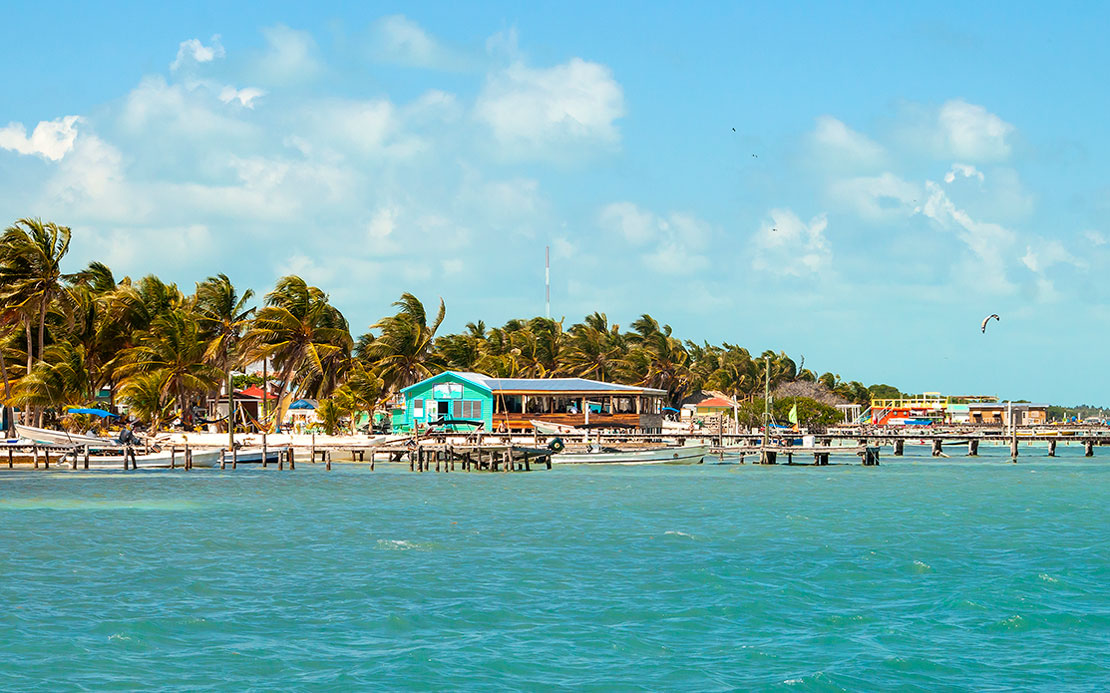
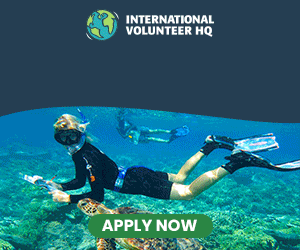
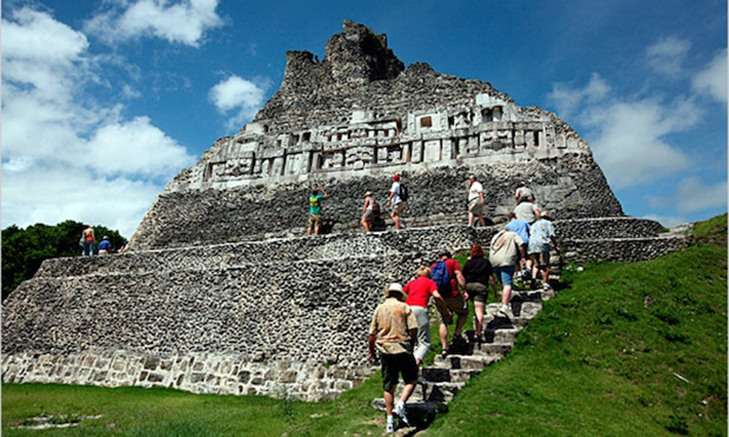
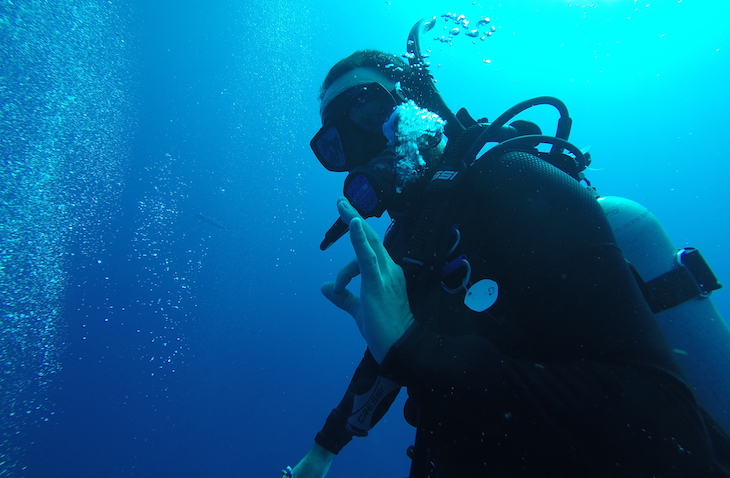

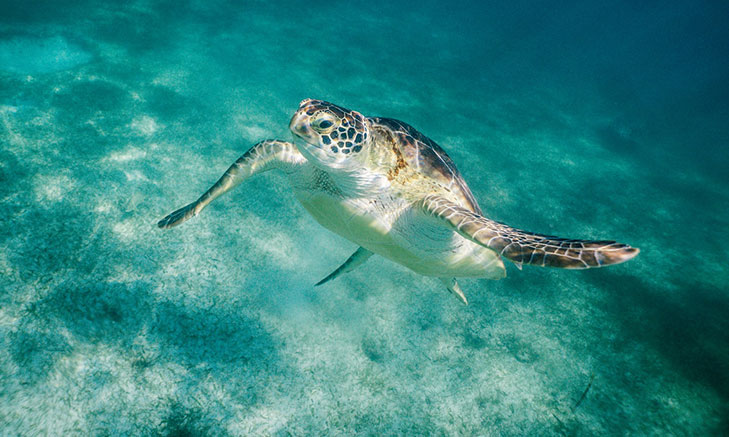
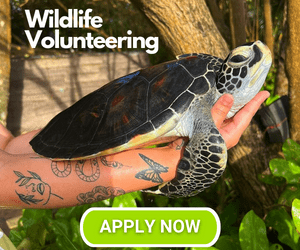

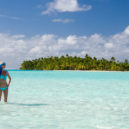
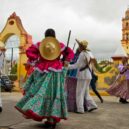
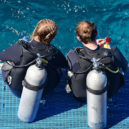
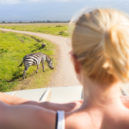






Robin Van Auken · Writer
Robin is a researcher, writer, and a registered professional archaeologist, a skillset she uses every day as a cultural communication specialist with Hands-on Heritage. Her projects connect communities with an emphasis on interpretation and education and conserve cultural and environmental legacies.